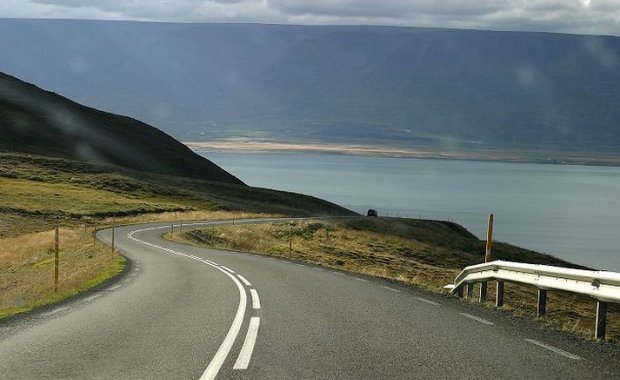Traffic along the Ring Road increased by 12.7% in June, compared to the previous year. The year-over-year increase is larger than any since the Icelandic Road and Coastal Authority began systematically measuring traffic. A significant source of the increase is growing tourism.
A dramatic increase in traffic in Reykjavík also suggests locals are driving more as economic conditions continue to improve: June traffic in the capital increased by 14.1% compared to 2016. June 2016 showed only a 4.9% increase over 2015. Traffic figures exhibited a dramatic drop following the 2008 financial meltdown.
Traffic figures suggest foreign travellers take shorter trips
The figures point to a change in the travel habits of foreign visitors. The largest increase was in South Iceland, where traffic increased by 15%, while the smallest growth occurred in North Iceland where traffic only increased 7%. This is a significant drop compared to June 2016, when traffic increased 16.3% compared to 2015.
Read more: Fewer foreign travellers visiting Eastfjords, as visitors taking shorter trips during Iceland stay
The increase in traffic in East Iceland also shows a dramatic decrease compared to last year. The year over year increase in E. Iceland in June 2016 was 27.5%, but was only 8.7% in June 2017.
These figures reflect the fact that foreign travellers increasingly take only shorter day trips from Reykjavík. As a results the Eastfjords, North Iceland and the Westfjords.
Traffic along the Ring Road increased by 12.7% in June, compared to the previous year. The year-over-year increase is larger than any since the Icelandic Road and Coastal Authority began systematically measuring traffic. A significant source of the increase is growing tourism.
A dramatic increase in traffic in Reykjavík also suggests locals are driving more as economic conditions continue to improve: June traffic in the capital increased by 14.1% compared to 2016. June 2016 showed only a 4.9% increase over 2015. Traffic figures exhibited a dramatic drop following the 2008 financial meltdown.
Traffic figures suggest foreign travellers take shorter trips
The figures point to a change in the travel habits of foreign visitors. The largest increase was in South Iceland, where traffic increased by 15%, while the smallest growth occurred in North Iceland where traffic only increased 7%. This is a significant drop compared to June 2016, when traffic increased 16.3% compared to 2015.
Read more: Fewer foreign travellers visiting Eastfjords, as visitors taking shorter trips during Iceland stay
The increase in traffic in East Iceland also shows a dramatic decrease compared to last year. The year over year increase in E. Iceland in June 2016 was 27.5%, but was only 8.7% in June 2017.
These figures reflect the fact that foreign travellers increasingly take only shorter day trips from Reykjavík. As a results the Eastfjords, North Iceland and the Westfjords.







